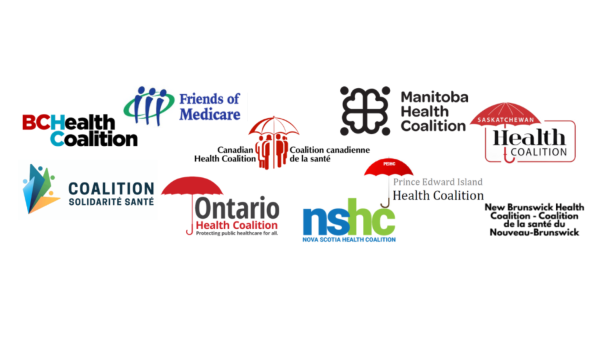Researchers to expose health inequities caused by public and private collisions
As health, illnesses, and social/structural determinants of health care are better understood and scientific discoveries improve treatments and recoveries, who will ultimately benefit and who will be left out remains a question. Will Medicare expand to cover more services, or will for-profit interests take advantage of the developments and innovations?
At last year’s research roundtable, Health Canada’s Jennifer Goodyer said, “Health Canada thinks that if there is an innovation in health care delivery, it should be to the benefit of all Canadians, not just those who can afford to pay for those innovations.”
Researchers studying the public-private collisions and tensions from a health equity perspective will present at the research roundtable on the profitization of health care in Canada this October. The panelists will discuss the implications of allowing private provision of virtual care, primary care, dental care, and reproductive health care.
The day-long research roundtable at the University of Ottawa on October 23 is being organized by the Canadian Health Coalition and the University of Ottawa’s Centre for Health Law, Policy and Ethics.
Space is limited and early registrations are encouraged. Registration deadline is September 30.
Speaking on the panel are Ruth Lavergne, Mona-Lisa Amam Odukoya, Vanessa Gruben and myself.
Virtual care
Ruth Lavergne holds a Tier II Canada Research Chair in Primary Care and is an Associate Professor in the Department of Family Medicine at Dalhousie University. Lavergne will speak on episodic virtual care and private payment for primary care.
Lavergne will examine episodic virtual care in Nova Scotia and New Brunswick, specifically publicly funded episodic virtual care provided through a partnership with Maple. Lavergne will share findings from a public survey examining perceptions and experiences of episodic virtual care in the Maritimes. She will contextualize the findings within a broader program of research that examines private payment and for-profit delivery of primary care in Canada.
Dental care
Mona-Lisa Amam Odukoya is completing a Bachelor of Health Sciences with a minor in Law at Carleton University. She has several years of experience as a dental clinic administrator.
Odukoya will share her findings from a study exploring early public and provider experiences with the Canadian Dental Care Plan. Launched last year, the public dental care plan is being implemented within a profit-driven system of care. Odukoya will share “whether the plan’s public goals are being realized in a landscape dominated by private delivery.”
According to Odukoya, “the research offers a real-time snapshot of how a landmark public program is landing on the ground, particularly among vulnerable and underserved communities. The presentation will outline key patient-provider disconnects, emerging themes of fragmentation, and policy opportunities to strengthen delivery, outreach, and accountability.”
Reproductive health care
Vanessa Gruben is the director of University of Ottawa’s Centre for Health Law, Policy and Ethics, and Associate Professor in the Faculty of Law at the University of Ottawa. A recognized expert in health law and reproductive justice, Gruben’s scholarship spans assisted reproduction, organ donation, harm reduction, and health care regulation.
At the roundtable, Gruben will examine the regulatory framework governing Ontario’s fertility sector, with particular focus on Ontario’s approach to in vitro fertilization (IVF) policy, to assess what lessons can be learned for regulating privately financed health care.
Gruben’s analysis reveals that “fertility services are primarily regulated through self-regulation by medical colleges and clinical practice guidelines, with minimal government oversight except where public funding is provided.” Gruben will argue that the “findings serve as a cautionary tale for potential expansion of privately financed health care in Canada.”
I will speak on the panel about seizing New Brunswick’s abortion moment for reproductive justice.
At last year’s research roundtable, Health Canada officials highlighted New Brunswick’s regulation restricting Medicare-funded procedural abortions to hospital settings as an example of a province not meeting the criteria and conditions of the Canada Health Act.
Months after the roundtable, in November, New Brunswick axed the regulation and Health Canada reimbursed the province for deductions it had made to the health transfer for previously violating the Canada Health Act.
As New Brunswick allows more procedures such as cataract surgeries to be done in private clinics, I argue that reproductive justice advocates concerned about equity in health care should be cautious about making comparisons and calling for more private delivery of health care. The current political openness to increase abortion access in New Brunswick could be seized by either public or private interests, each holding very different predictable outcomes for reproductive justice.

The roundtable is an important opportunity to hear the latest research on how profitization is threatening Canada’s health care system and health equity. It is also an opportunity to meet and network with researchers, policymakers, and advocates for public health care and health equity.
Students can apply for one of the free spots here.
Future blog posts will feature other researchers presenting at this year’s research roundtable.



